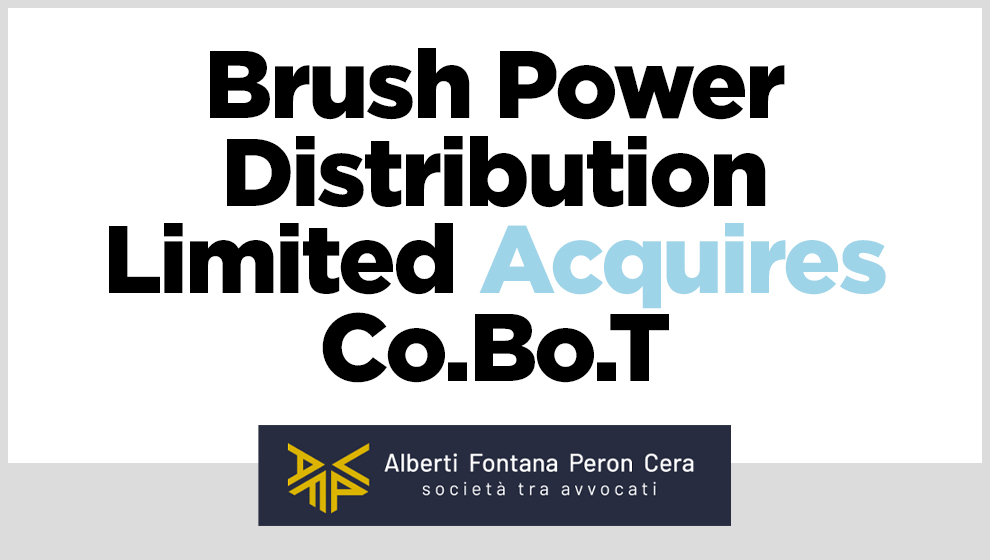CO.BO.T. is an Italian company founded in 1990 and is now recognised as a winding specialist across Europe. Brush Group has acquired CO.BO.T aiming to increase its production capacity in order to support the expansion of the UK electricity grid and consolidate its presence in the European market. Alberti Fontana Peron Cera (AFPC Società tra Avvocati) assisted the sellers for the legal aspects of this transaction with partner Francesco Fontana assisted by Giorgia Micheletto and Claudia Berto.
Q&A with Francesco Fontana
Please elaborate on the specific role of Alberti Fontana Peron Cera (AFPC Società tra Avvocati) and the tasks you undertook as part of your responsibilities to assist in this acquisition.
I am founding partner of Alberti Fontana Peron Cera (AFPC), a Law Firm based in Italy (about 40 people) that mainly deals with corporate and commercial law and advises Italian and foreign companies in M&A operations, reorganization and corporate restructuring.
I am head of the corporate law department. In CO.BO.T acquisition, I advised the sellers in the sale of the Target shareholdings, supported by the associate lawyers Giorgia Micheletto and Claudia Berto.
Can you explain what your process of conducting due diligence for an acquisition and do you typically adapt the process to suit each individual client, if so how do you ensure a thorough assessment whilst catering to the client?
When on the seller's side, it is essential to examine and collect any information that could have a detrimental effect on the process of selling the shareholdings or that, in any case, could be or become an obstacle or a slowdown in the transaction.
The objective is to foresee and settle – to the extent possible prior to the execution of the share and purchase agreement – the occurrence of events which (otherwise) would constitute one or more conditions precedent. In this way, sellers enter the transaction with greater serenity and clear visibility of the timing for the implementation of the transaction.
When navigating any complexities that arise during a project of that kind, what are challenges you might encounter and how do you and your team commonly address it?
In numerous transactions, you acknowledge that a prerequisite is of separating - before the execution of the deed of transfer - some real estate or other assets and to remove or fix some shareholders (other than the sellers) from the corporate structure by liquidating their respective positions.
A similar result can be mostly achieved in various ways, by example, such as through an asymmetrical demerger, a direct sale of assets and debts (or a contribution in kind) on a going-concern basis or through a conventional corporate withdrawal with facilitated assignment of properties and with the take-over by the withdrawing members of the debt pertaining (if any) to the carved-out assets.
Having worked for AFPC for quite some time now, what is the value your team brings to your clients and how is this unique to stand out from other law firms?
AFPC’s value entails in the human capital and in the relentless synergy between the departments of my Law Firm (corporate law, intellectual property law, labor law, criminal commercial law), which allow us a material and swift assessment, cross-cutting on the legal issues that, from time to time, we face and overcome in corporate transactions.
























